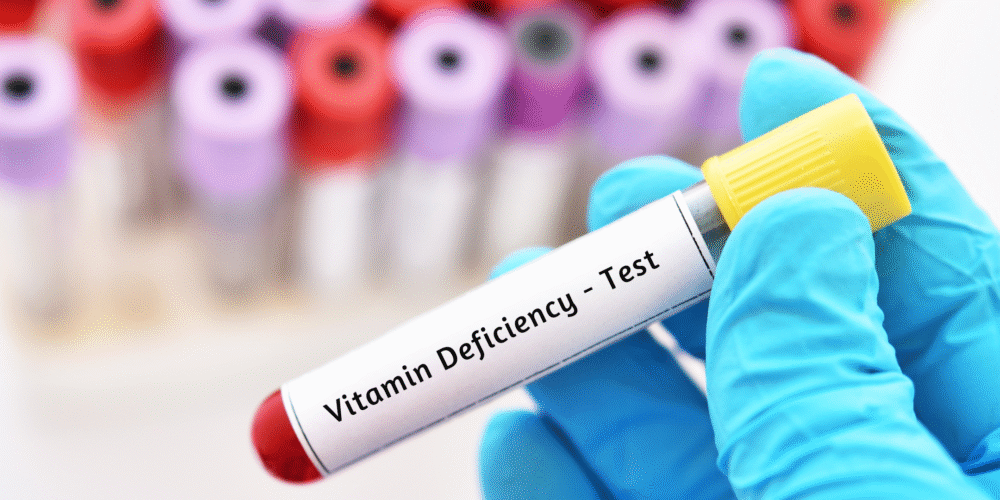
Understanding the Importance of Vitamin Deficiency Testing
In today’s fast-paced world, maintaining optimal health can be challenging. One of the key aspects of staying healthy is ensuring your body receives all the necessary vitamins and minerals it needs. However, many people are unaware that they might be suffering from a vitamin deficiency. This is where vitamin deficiency testing comes into play. Through a simple blood test, you can gain valuable insights into your nutritional status and take steps to address any deficiencies.
What is Vitamin Deficiency Testing?
Vitamin deficiency testing refers to a series of blood tests designed to assess the levels of various vitamins and minerals in your body. These tests can detect deficiencies in essential nutrients such as Vitamin D, B12, iron, and calcium, among others. Understanding your body’s nutritional needs is crucial for maintaining overall health and preventing potential health issues.
WhatsApp (07495970109) Marylebone Diagnostic Centre to find out how much these could cost you today.
Why Are Vitamin Deficiencies Common?
Vitamin deficiencies can occur due to a variety of reasons, including poor dietary habits, lifestyle choices, and certain medical conditions. For instance, a diet lacking in fruits, vegetables, and whole grains may not provide enough essential nutrients. Additionally, individuals with specific dietary restrictions, such as vegetarians or vegans, may be more prone to deficiencies in certain vitamins like B12 and iron.
The Importance of Regular Vitamin Deficiency Testing
Regular vitamin deficiency testing is vital for several reasons. It helps identify deficiencies before they manifest into more serious health problems. Early detection allows for timely intervention, which can include dietary changes, supplements, or medical treatment.
Preventing Long-term Health Issues
Undiagnosed vitamin deficiencies can lead to long-term health issues. For example, a lack of Vitamin D can contribute to bone diseases such as osteoporosis, while a deficiency in Vitamin B12 may lead to neurological problems. By conducting regular blood tests for vitamin levels, you can prevent these potential health complications.
Personalized Nutrition and Health Plans
Vitamin deficiency testing provides a detailed insight into your body’s specific nutritional needs. With this information, healthcare providers can create personalized nutrition and health plans tailored to your individual requirements. This personalized approach ensures that you receive the right balance of nutrients for optimal health.
Types of Vitamin Deficiency Tests
There are various types of vitamin deficiency tests available, each targeting different vitamins and minerals. Some common tests include:
Full Vitamin and Mineral Blood Test
A full vitamin and mineral blood test provides a comprehensive overview of your nutritional status. This test measures levels of key vitamins and minerals, including Vitamin A, C, D, E, B-complex vitamins, iron, calcium, magnesium, and zinc.
Micronutrient Testing
Micronutrient testing focuses on evaluating the levels of essential vitamins and minerals required in smaller amounts. This type of test is particularly useful for detecting deficiencies that might not be apparent in standard blood tests.
Specific Vitamin Tests
In some cases, you may need to test for specific vitamins based on symptoms or risk factors. For example, a Vitamin D blood test can be conducted if you have bone pain or muscle weakness, while a Vitamin B12 test may be recommended if you experience fatigue or cognitive issues.
How to Prepare for a Vitamin Deficiency Test
Preparing for a vitamin deficiency test is relatively straightforward. Here are some tips to ensure accurate results:
- Fasting: Some tests may require you to fast for a certain period before the test. Follow your healthcare provider’s instructions regarding fasting.
- Medication and Supplements: Inform your healthcare provider about any medications or supplements you are taking, as they may affect test results.
- Hydration: Stay hydrated before your test to make the blood draw easier and more comfortable.
What to Expect During the Test
The process of conducting a vitamin deficiency test is simple and quick. A healthcare professional will draw a small sample of blood, usually from a vein in your arm. The sample is then sent to a laboratory for analysis. Results are typically available within a few days, after which your healthcare provider will discuss the findings with you and recommend appropriate action if needed.
Understanding Your Test Results
Once you receive your test results, it’s essential to understand what they mean. Your healthcare provider will explain the results in detail, highlighting any deficiencies and their potential impact on your health. Based on the results, you may be advised to make dietary changes, take supplements, or undergo further testing if necessary.
Taking Action on Vitamin Deficiency
If your test results indicate a vitamin deficiency, taking prompt action is crucial. Here are some steps you can take:
- Dietary Changes: Incorporate more nutrient-rich foods into your diet, such as fruits, vegetables, lean proteins, and whole grains.
- Supplements: In some cases, dietary supplements may be recommended to address specific deficiencies. Always consult with a healthcare provider before starting any new supplement regimen.
- Lifestyle Adjustments: Make lifestyle changes that support overall health, such as regular exercise, stress management, and adequate sleep.
MDC Conclusion
Vitamin deficiency testing is an essential tool for maintaining optimal health. By understanding your nutritional status, you can take proactive steps to prevent deficiencies and their associated health risks. Whether you’re experiencing symptoms or simply want to ensure your body receives the nutrients it needs, a blood test for vitamin levels can provide invaluable insights. Regular testing, along with a balanced diet and healthy lifestyle, will help you achieve and maintain better health in the long run.
Marylebone Diagnostic Centre
73 Baker Street, London
+44 7495 970109
marylebonediagnosticcentre.com











